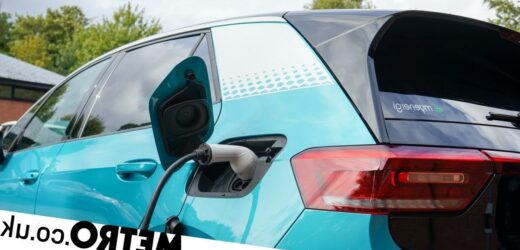In the aftermath of the COP26 climate conference – and amid the ongoing climate crisis – many of us are wondering how we can do our part to mitigate the effects of climate change.
Of course, we already know about recycling, eating less meat, and buying sustainable materials and products, but the use of cars remains a major factor in our collective carbon footprint.
Though public transport in most parts of London is pretty well-equipped, it is not so in other parts of the UK, particularly in rural towns where getting around means waiting hours for a bus or driving a car.
The petrol we use to run those cars is widely known as a non-sustainable product, predicted to run out by 2060 if we keep burning fossil fuels at our current rate.
But how are we supposed to reduce our use of petrol when we need it to get to work, get home, or to see friends?
Electric cars have grown in popularity in recent years as a solution to dwindling fuel stocks. They’re cheaper to run and kinder to the earth, but do come with drawbacks worth taking into consideration.
Their suitability as an eco-friendly alternative to petrol cars is clear. Whether they can make a dent in our natural resource consumption, however, depends on their accessibility.
CEO of the Electric Car Organisation (ECO), Julia Kemp, said: ‘Electric cars have so many benefits as they produce no carbon emissions and allow people to save money.
‘You’re not spending money on refuelling and can cut down costs at home, as you’re able to plug your car into a charger and track when the best times are to recharge.’
Petrol prices have risen exponentially in the past decade, so as well as helping the environment, the relatively low running costs of electric vehicles can help us save money going forward.
Exempt from certain fees (like the ULEZ) and road tax, it seems to make financial sense.
However, many electric cars are quite pricey to buy in comparison to petrol cars. The cheapest electric car on the market currently is from Skoda at £15,000, while VW, Vauxhall, MG, Seat, MINI, and Fiat all have electric cars on sale for less than £30,000.
For some people this is around the ballpark they’d expect to pay, especially in comparison to Teslas or BMW’s electric options which start at around £40,000. But, if you’re a single parent or living paycheck-to-paycheck, dropping £15,000 on a car simply isn’t feasible – especially when you can get a perfectly workable second-hand petrol car for a fraction of that.
Kemp suggests leasing an electric car as an alternative option to buying, saying: ‘Brits can save huge amounts of money by leasing an electric car… as their car will cost less than standard car financing or buying your car outright.’
Many electric models available to lease are ‘nicer’ than those you could afford to buy, and companies offer payment plans to help with costs (while simultaneously reducing our carbon footprint).
It still remains the case that investing in a chargeable car – even with leasing and financing options available – is a risk for most, and a huge chunk to spend.
Those on a budget will prefer to stick with their old faithful petrol motor and spend their hard-earned cash on food and clothes instead, which is totally understandable. The environment and the overarching climate crisis often pales in comparison to the day-to-day difficulties of ensuring your family have everything they need.
Though getting an electric car is great if you can afford it, the solutions to our environmental problems lie in collective action, rather than what we each as individuals can do.
Source: Read Full Article




